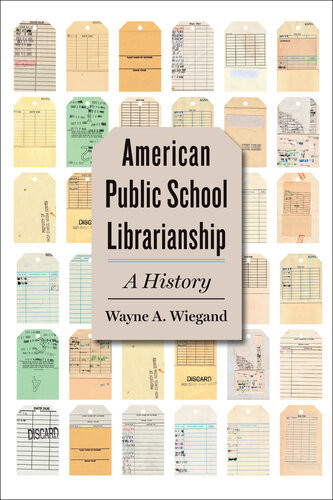

Most ebook files are in PDF format, so you can easily read them using various software such as Foxit Reader or directly on the Google Chrome browser.
Some ebook files are released by publishers in other formats such as .awz, .mobi, .epub, .fb2, etc. You may need to install specific software to read these formats on mobile/PC, such as Calibre.
Please read the tutorial at this link: https://ebookbell.com/faq
We offer FREE conversion to the popular formats you request; however, this may take some time. Therefore, right after payment, please email us, and we will try to provide the service as quickly as possible.
For some exceptional file formats or broken links (if any), please refrain from opening any disputes. Instead, email us first, and we will try to assist within a maximum of 6 hours.
EbookBell Team

5.0
68 reviewsThe first comprehensive history of American public school librarianship.
"Can I get a library pass?" Over the past 120 years, millions of American K–12 public school students have asked that question. Still, we know little about the history of public school libraries, which over the decades were pulled together and managed by hundreds of thousands of school librarians. In American Public School Librarianship, Wayne A. Wiegand recounts the unseen history of both school libraries and their librarians.
Why, Wiegand asks, did school librarianship turn out the way it did? And what can its history tell us about limitations and opportunities in the coming decades of the twenty-first century? Addressing issues of race, social class, gender, and sexual orientation (among others) as they affected American public school librarianship throughout its history, Wiegand explores how libraries were transformed by the Great Depression, the civil rights era, Lyndon Johnson's Great Society programs, and more recent legislation like No Child Left Behind, Common Core, and the Every Student Succeeds Act. Wiegand touches on censorship, the impact of school segregation on school libraries, disparities in funding that fall along lines of race and class, the development of school librarianship as a profession, the history of organizations like the American Association for School Librarians, and how emerging technologies affected school librarianship.
Wiegand clarifies the historical role of the school librarian as an opponent of censorship and defender of intellectual freedom. He also analyzes the politics of a female-dominated school library profession, identifies and evaluates the profession's major players and their battles (often against patriarchy), and challenges the priorities of librarianship's current agendas, particularly regarding the role of "reading" in the everyday lives of children and young adults. Filling a huge void in the history of education, American Public School Librarianship provides essential background information to members of the nation's school library and educational communities who are charged with supervising and managing America's 80,000 public school libraries.